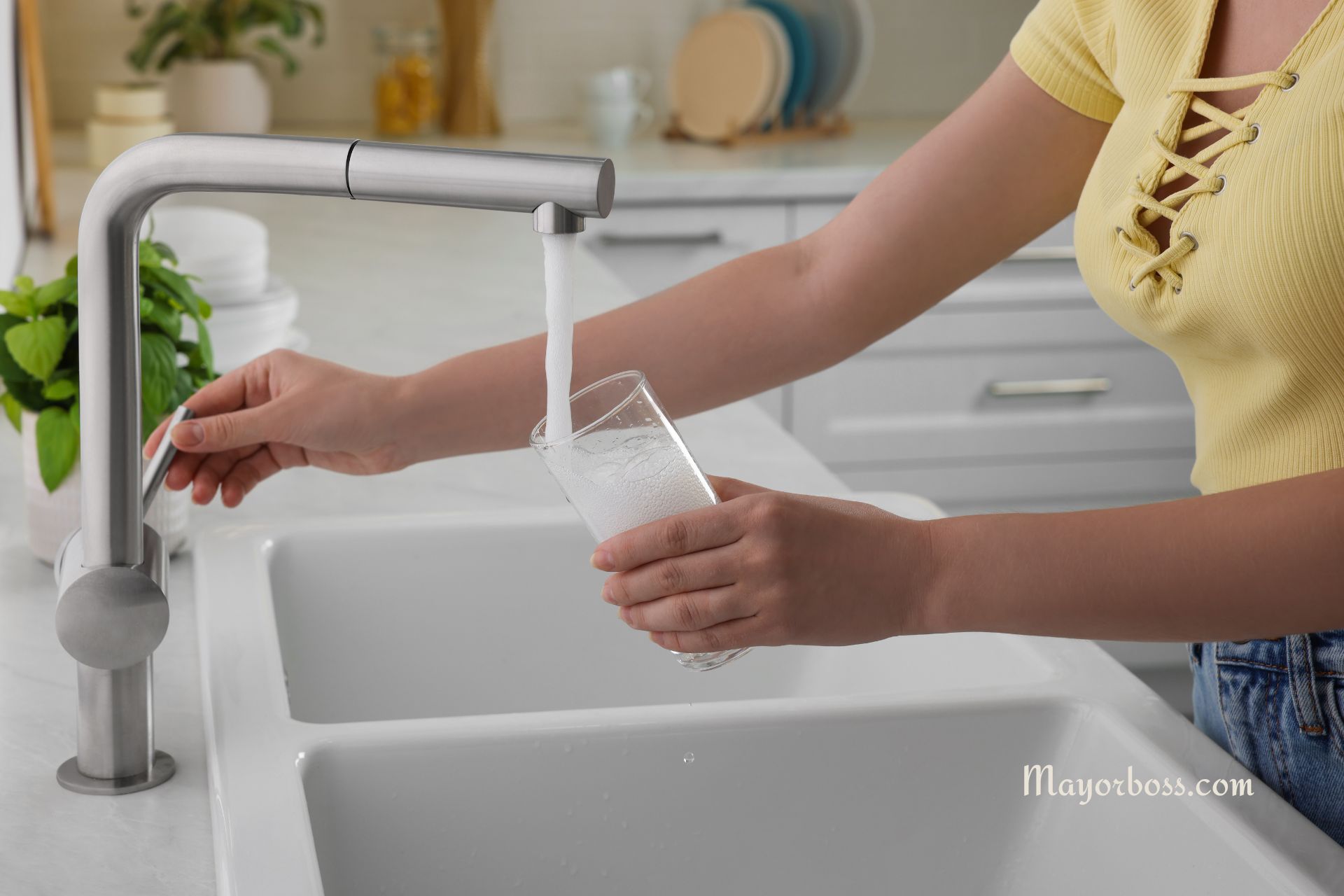5 Signs Your Home Has Hard Water (and How to Fix It)
Have you ever noticed dingy spots on your clean dishes, dry and itchy skin after a shower, or stubborn buildup on your faucets? These could be signs you have hard water in your home. While not a direct health hazard, hard water can be an annoyance and cause long-term issues. Let’s dive into understanding what hard water is, how to spot the signs, and solutions for softening your home’s water.

What is Hard Water?
Hard water simply means water with a high mineral content, primarily calcium and magnesium. These minerals are naturally collected as water travels through the ground, dissolving bits of rock and soil. While harmless to drink, the effects of hard water can manifest in various ways around your home.
5 Telltale Signs of Hard Water
- Spotty Dishes and Glassware: Hard water makes rinsing soap difficult, often leaving behind a white, cloudy residue on dishes, even after being run through the dishwasher. This is evidence of the minerals in the water reacting with your soap.
- Soap Scum and Scaly Buildup: Notice a stubborn, filmy white buildup on your sinks, shower tiles, and faucets? This is called soap scum, a result of soap not dissolving properly in hard water. Hard water also leaves mineral deposits called scale, which can be quite unsightly.
- Dry, Itchy Skin & Dull Hair: Hard water can hinder your ability to rinse off soap and shampoo effectively, leaving behind a film on your skin and hair. This can lead to dryness and itchiness and make your hair look dull and lifeless.
- Faded Laundry and Less Effective Detergent: The minerals in hard water can react with laundry detergent, reducing its cleaning power. Your laundry may feel stiff, look faded or dingy, and wear out more quickly.
- Reduced Water Flow and Plumbing Issues: Over time, scale buildup from hard water can constrict your pipes significantly, lowering water pressure and potentially leading to clogs and appliance malfunctions.
How to Test for Hard Water
To get a definitive answer on the hardness of your water, there are a few options:
- DIY Hard Water Testing Kits: These simple tests are readily available at hardware stores and online. They measure the mineral content (hardness) of your water in grains per gallon (GPG).
- Professional Water Testing: If you want a comprehensive water analysis, contact a local water testing lab or your water provider for testing services.
How to Fix Hard Water Problems
The best solution for fixing hard water problems is a whole-home water softener. Here’s how it works:
- Water Softening Systems: These specialized systems use a process called “ion exchange” to remove the calcium and magnesium ions. Resin beads inside the softener attract and trap the hardness minerals, replacing them with sodium or potassium ions. This creates “soft water.”
- Benefits of Water Softeners:
- Protects plumbing and appliances from scale buildup
- Improves soap lathering and cleaning effectiveness
- Prevents spots on dishes and glassware
- Leaves skin and hair feeling softer
- Makes laundry brighter and helps it last longer
Frequently Asked Questions
- Is it safe to drink hard water? Yes, it’s generally safe to drink, but some people dislike its mineral-heavy taste.
- Are all water softeners the same? No, consider your household size and water usage to determine the right size softener.
- How much does a water softener cost? Prices vary but expect to invest in the range of $500 to $2,000 for a quality unit and professional installation.
Say goodbye to the frustrations of hard water and give your home the soft water it deserves!
